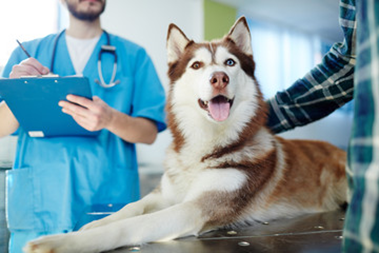
As our dogs grow and develop, their needs will eventually change in one way or another. One common adaptation that pet parents often need to make is switching their dogs’ food to an option that better prioritizes their health needs. Vet recommended puppy food and dog food options that are approved during routine meetings can be an excellent way to adapt to a dog’s growing needs for a wide range of reasons. Here, Freshpet discusses why pet parents may be encouraged to put their dog on a vet recommended diet.
Food Allergies
Allergies caused by food can be very detrimental to a dog’s overall health. As a result, they may develop symptoms such as skin and ear infections, rashes, itchiness, diarrhea, vomiting, or weight loss. If your dog frequently exhibits symptoms of food allergies, a vet recommended dog food that takes these allergies into consideration can be a great way to help prevent flare-ups. One important thing for pet parents to remember is that it is unsafe to try to either test or diagnose a food allergy without the expert advice of a professional. A veterinarian can examine your dogs’ symptoms, diagnose their issues, and help facilitate a food trial with options that take them into account.
Obesity
Obesity is one of the most common preventable health issues that effects dogs. Approximately 25-30% of dogs in North America are considered obese, growing to almost 45% for dogs between the ages of 5 and 11. Not all dogs that are overweight need to change their diet, as obesity can also be a sign that they are not getting adequate levels of physical activity on a day-to-day basis. If your dog struggles to lose weight or has underlying conditions that contribute to obesity, however, a vet recommended diet may be necessary to address these factors. There are several qualities that a vet recommended dog food may have to ensure that a dog is on the fast track to better health. For example, those offerings may be lower in calories yet higher in fiber to help them feel full. They may also be more nutrient dense and can be higher in protein to strengthen a dog’s joints and maintain their muscle mass as they lose weight.

Age
As pet parents, we hope that our dogs will live to a ripe old age with us. When they eventually reach senior age, there are several changing aspects of their lives that we may need to adapt to. For example, as dogs approach the last third of their lives, they may develop health issues such as arthritis or other degenerative conditions. They may be less active and spry as a result, and this will certainly impact vet recommendations for which foods will be best for their continued health into old age. Vet recommended dog food for a senior age furry friend will likely include options that are lower in calories but higher in fiber, as these foods may help prevent obesity and digestion issues.
Recommendations may be necessary for younger dogs as well in some situations as well. This is because puppies have different nutritional needs than adult dogs, and a vet recommended puppy food will include proper nutrient amounts for their case. This can be particularly important for puppies that will soon grow larger, as growing at a controlled pace will reduce the risk of developing any health complications along the way. The needs of puppies will always vary from breed to breed due to differences in their size and activity level, and a vet recommended puppy food will be sure to take these factors into account.
Gastrointestinal Issues
There are several reasons that a dog may develop gastrointestinal issues over the course of their life, and a visit with your vet is the first step towards determining the cause. After determining the reason for their flare-ups, your vet will provide recommendations based on their condition and symptoms. For example, some dogs that struggle with diarrhea or vomiting can benefit from a vet recommended dog food that is high-fiber or an option that is formulated to be easily digestible for our furry friends. Since there are so many potential causes for issues such as diarrhea or vomiting, it is important to discuss the severity and frequency of these symptoms to get a proper diagnoses and dog food suggestion for your pet.
